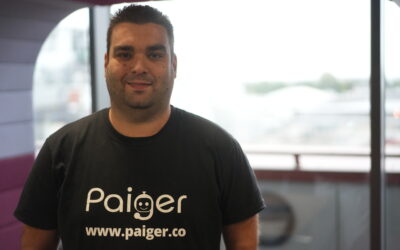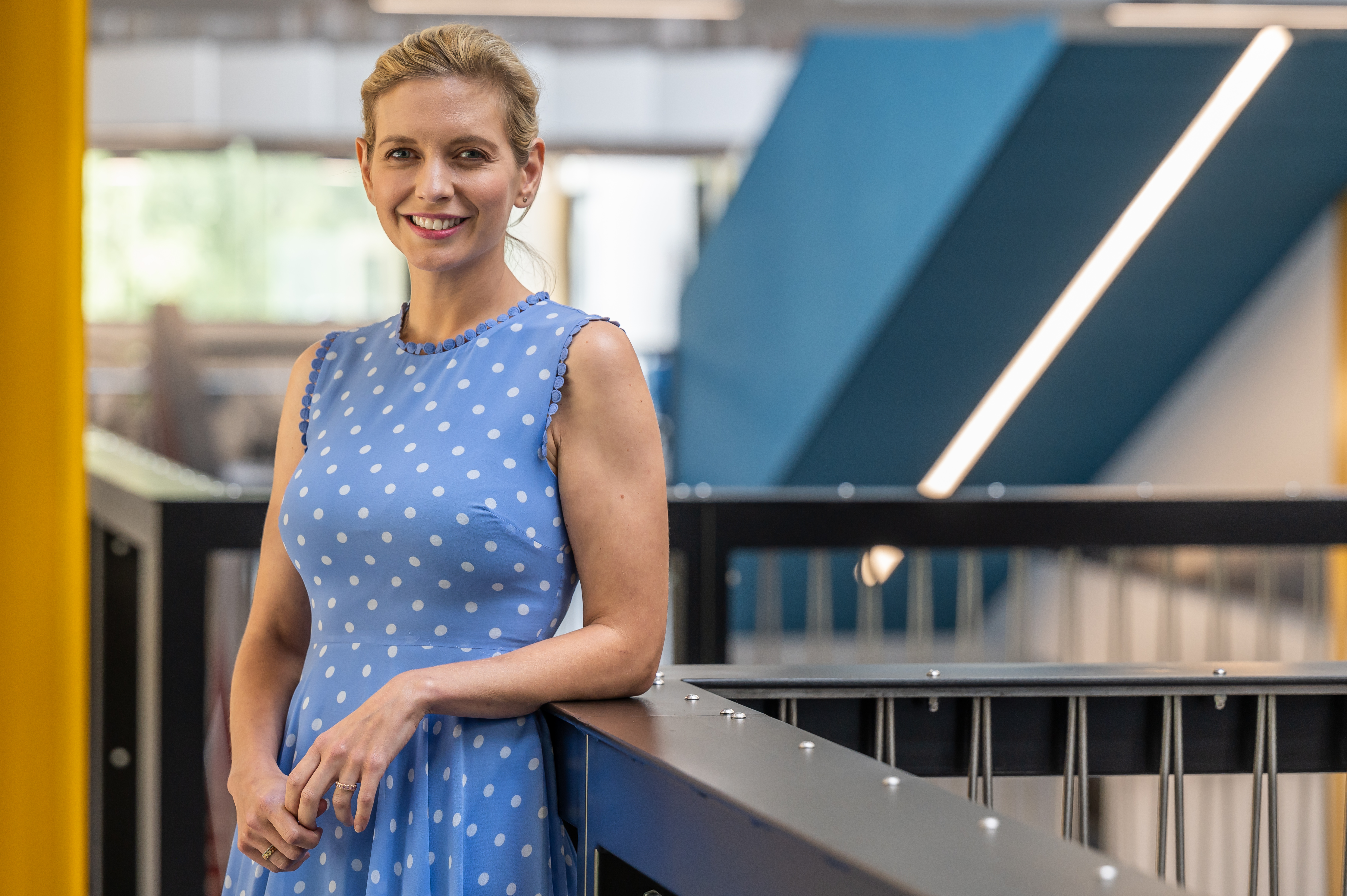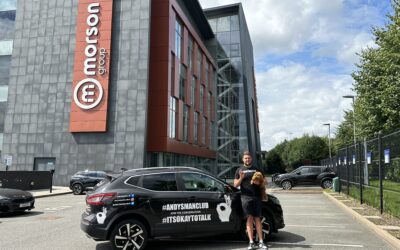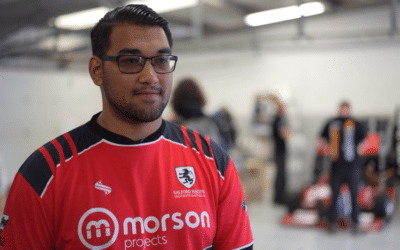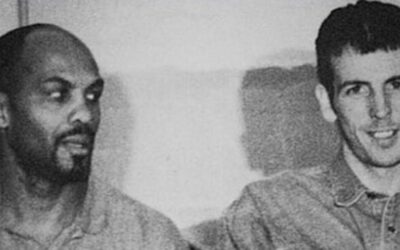David Richardson is Senior Manager for Maintenance Services at Chartright Air Group, based in Ontario, Canada.
British-born David was captivated by aviation engineering from a young age. His passion took him first to a career in the Royal Air Force, then into contracting, before making another big leap to live on the other side of the world with his young family.
For PathFinders, we spoke to David about his passion for aviation, his life in engineering and his advice for veterans looking to make the transition from a forces career into a civilian career.
When you were in school, what did you see your career as? What were your aspirations?
I did OK through school, and I developed an interest in aviation and a desire to join the industry through going to air shows. I had a bit of a challenging upbringing, so I wanted to leave home quickly, and going into aviation was the way I wanted to go. There was no deviating from that from an early school age.
It was on the engineering side, how it works, how an aircraft gets off the ground that fascinated me. I just wanted to know more about that. Every time I saw an aeroplane take off, I would stop and watch, a little bit confused to be honest. How did that big heavy thing get off the ground?
The love of aircraft took me into applying to join the Royal Air Force. The ability to train and be paid at the same time with some travel did appeal to me. I started that process when I was around 16. I went through the interviews, and eventually I joined the RAF a month and a half after my 17th birthday.
How long did you spend in the RAF and what was your route through there like?
I spent 13 years with the RAF, went through my initial basic training, the soldier training for the first six weeks, then went off to Halton and did my technical trade training for several months. I was then posted out to RAF Coningsby in Lincolnshire around 1991. I was looking after Tornados, working on maintenance, both squadron and hanger work until 1997 when I was lucky enough to get a posting out Sardinia. I did a lot of cool things out there, looking after incoming aircraft like Hercules, VC10s and anything else that dropped in, like the Red Arrows. I spent a year there until the base closed.

Shortly before I was due to leave, I managed to get on a fitter’s course which was further training. Then I was posted off to RAF Cosford to do some more technical training, which came with a promotion. I spent a year there completing the training and I got a lucky posting to RAF St Morgan, just outside Newquay with the Sea Kings, initially going down there looking after maintenance in the hangers.
Then I moved into a role carrying out composite repairs and static and dynamic balance of the blades. And that’s where I stayed until 2003, when I left the RAF.
What are the challenges associated with leaving the armed forces and what advice would you give to somebody about to take that step?
It’s a daunting process. You’ve spent your career being babysat, for want of a better phrase, in my case from just 17 years old.
They give you the food, they tell you what to do, when to do it and they train you with the things that you need. Leaving that and going into Civvy St is difficult, it’s daunting. You start looking at some resettlement courses that the military offer you before you leave and you start scratching your head and thinking, where do I want to go? For me, not too difficult. I wanted to stay with aircraft and aircraft maintenance. In what direction I wanted it to go, I wasn’t sure. But you do get a period of resettlement time. So, for me that’s when I jumped into the contracted world. It gives you an introduction to Civvy Street while still having the protection of being in the military. There were about four months where I was kind of dipping between the military and contract work. But it is challenging. It’s a bit of a wake-up call, but the support is there.
I was fortunate because I was going out with a trade that was recognised outside the military, whereas for some of the other guys in other trades it might not be so easy. It’s more military-based trades versus Civvy Street so I came out with pieces of paper that that were instantly recognised by civilian employees.

As well as transitioning from the armed forces to a civilian career, you also made a step to move to a different country, moving to Canada. Talk to us about that journey, and the challenges you faced.
It’s always been kind of knee-jerk with my wife and I, we’ll look at something and we’ll react quickly. When I was working in the contract world, I got approached by a company manufacturing parts for the Airbus A380 and got offered a permanent role in Canada, with support and assistance in getting out there.
At that time, we did have a little girl. She was less than a year old and we were expecting our second child, so it was a bit daunting, to say the least – pregnant wife and a baby in arms and moving halfway across the world. I don’t know how we did it but we did!
The company, SNP Aerospace in Novia Scotia, came to Bristol to do some interviews. I interviewed there and got offered a job on the spot. Four months later, we were ready to leave.
They paid for the move and there was support there to get us across. These people tell you where to set up a bank account, or for your vehicle insurance, go to these people. They assist you to get the fundamentals in place.

We were ready to go. It was myself, my wife and my little girl, sat there all packed up. All our worldly belongings had already moved on a truck. We were ready to fly out the following morning to Nova Scotia and my dad came in and said “you’re not flying with a company called Zoom, are you?” I was. “Well, they just went bankrupt, and all the aircraft are grounded…” We had our money moving and our belongings were moving. We had a hotel, but we had rental cars booked. But the company that we were flying with just went bust and we didn’t have a flight out there the following day.
We had to scramble to get something else in place, but we’d already cancelled our UK credit cards with the intent to get Canadian ones once we got there. It was a challenge, but we managed to get there, via a couple of stops in the United States.
We landed into Halifax not knowing anybody or anything, we’d never set foot in Canada before! When we arrived, we spent the night there. We started to transition into life in Canada the next morning.
I was a production manager at that point. In that role, I looked after military contracts primarily. We were taking the wings off Aurora aircraft, so the four engines come off, the wings come off, the fin comes off, the vertical stabilisers come off and are all replaced with brand new items.
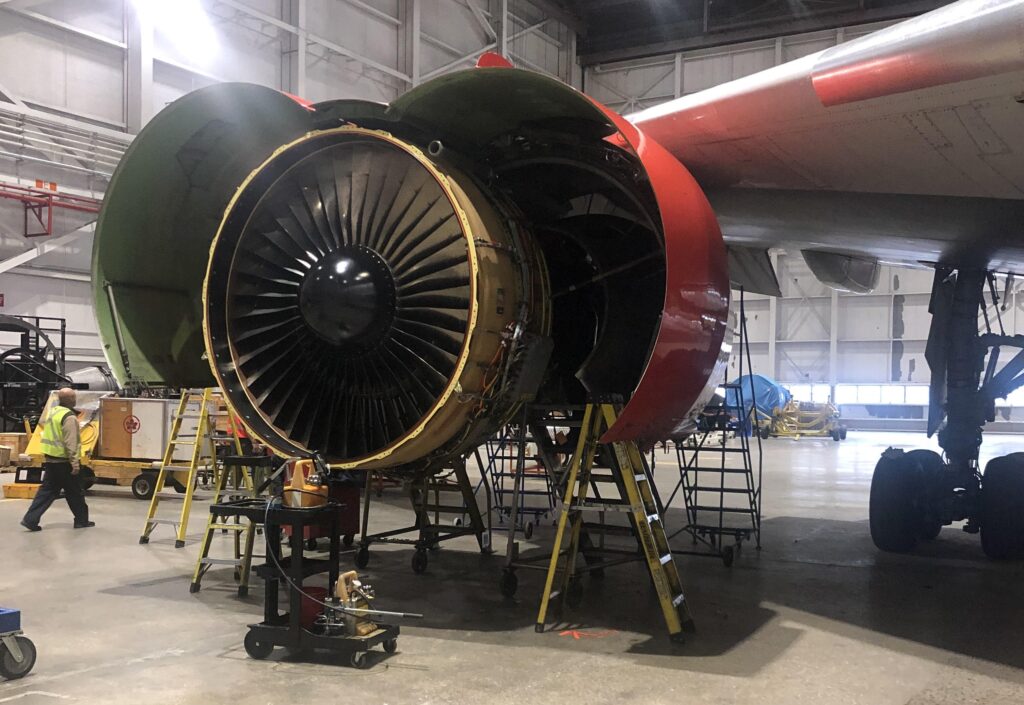
Following a spell with Air Canada, you’ve moved on to working in the private aviation field with Chartright. What is your role there?
We’re the biggest private jet business aircraft Charter company in Canada. And we have 53 aircraft on our books. Most are privately owned, and we have care, custody and control of those aircraft. The owners fly them, and when they’re not flying, they’re open to us to charter out on their behalf.
My position here at the moment is senior manager in maintenance services. I manage the base as far as maintenance goes, along with the bases we have in Florida, Vancouver, Calgary, Regina, Ottawa and anywhere in between where we put aircraft. So now I spend a lot of time talking to very rich owners and explaining why they need to spend half a million dollars on their aeroplane!


